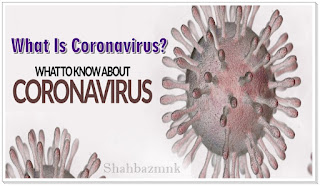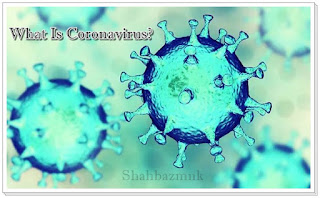What Runners Will Need to Learn about Coronavirus
The outbreak of this virus was in the news a lot recently. Should you be concerned about it?
Five cases are confirmed at the U.S.
Here is what runners ought to know more about the coronavirus symptoms, risk factors, and precautions to consider, particularly if traveling to races.
To discover more about what the coronavirus is and the way to remain on peak of your health match, we spoke to David Nieman, Dr.PH., wellness professor at Appalachian State University and director of the Human Performance Laboratory at the North Carolina Research Campus, to get the lowdown on which runners will need to learn more about the outbreak.
What's Coronavirus?
There are seven kinds of known coronaviruses on earth, based on the Centers for Disease Control and Prevention (CDC), that have frequently begun in animals like camels and bats. Ordinarily, these coronaviruses do not infect people, but three more recent kinds --SARS-CoV, MERS-CoV, and 2019-nCoV--consume.
What it Will Take to Create the Tokyo Marathon Team
On the other hand, the CDC says that it isn't understood why specific coronaviruses spread to individuals and many others do not. This latest outbreak originated in a marketplace in Wuhan, China, which marketed fish and live critters.
What Are the Signs of Coronavirus?
But more acute coronaviruses--like SARS-CoV and MERS-CoV--could result in pneumonia or pneumonia, according to the CDC.
MERS-CoV symptoms normally include a fever, fever, and shortness of breath. While human cases of MERS-CoV still happen --largely from the Arabian Peninsula--there haven't been any instances of SARS-CoV everywhere since 2004, the CDC reports.
The 2019-nCoV coronavirus is supposed to be less intense than SARS-CoV and MERS-CoV, with patients reporting that a moderate cough and shortness of breath, based on CNN.
Could Coronavirus Be Treated?
At the U.S., a Washington state resident who visited China lately is infected--he's since been hospitalized within Feline coronavirus an isolation unit, also is performing well, according to the Seattle Times. As of January 29, two individuals in California and one in Arizona--that had recently returned from Wuhan--were diagnosed too, according to CNN.
But, there are no vaccines to prevent coronavirus, and no particular treatments to aim it.
"Many people with frequent human coronavirus disease will recover by themselves," the CDC states, however it is possible to take drugs like Aspirin to relieve your symptoms. The CDC also recommends obtaining lots of fluids and rest that will assist you regain. And if you are worried about your symptoms or else they appear to be getting worse, see your physician immediately.
To stop contracting coronavirus in the first area, the CDC recommends taking precautions like washing your hands frequently (with water and soap for at least 20 minutes ), not touching your face with unwashed hands, and avoiding close contact with anyone who's sick.
You touch those items and you then touch eyes, nose, or mouth and it is called self-inoculation," Nieman said. Especially in crowded areas such as trains or airplanes, these droplets will float and you breathe in and become ill."
The CDC has three degrees of travel alarms:
- View - Grade 1, clinic standard precautions
- Alert - Measure 2, clinic improved precautions
- Caution - Grade 3, avoid nonessential travel
As of now, the CDC advocates degree 1--practicing standard precautions in regards to not getting ill --while still vacationing Transmission of Novel Coronavirus. Nevertheless they recommend not travel to Wuhan, China, if you do not absolutely need to.
"Chinese officials have shut transportation within and from Wuhan, such as buses, subways, trains, and also the airport," the CDC states.
Must We Be Worried?
People at the maximum risk for your 2019-nCoV coronavirus are the older or very young men and women, based on Nieman. Runners that are training normally do not need to worry more than the normal individual, however Nieman points out that runners that have just completed a very long race--like a half marathon or marathon--are in a greater risk.
"Generally speaking, for runners that are going through their usual training--rather than overtraining--that the training plan enhances the capability of the immune system to discover and cope with pathogens. Runners are, in actuality, less likely to have sick having an upper respiratory tract disease for example coronavirus," Nieman said.
Runners--and many others who exercise frequently --are usually less likely to become ill with these kinds of infections than individuals that aren't busy, Nieman added. The exclusion? People that are overtraining or who've only finished a race.
"If you reach the high end of training or a postrace scenario, then you're more vulnerable to disease," he explained. "For instance, following a marathon, runners are more likely to get sick with a respiratory disease than in people who did not race, as in a hurry you'll always push tougher than you want in practice. This causes a whole lot of strain to your immune system, which raises your chance of coming down with a disease in the forthcoming weeks."
That having been said, Nieman does not think you need to cancel any forthcoming races that you are traveling --unless your race is at China. With two instances supported in Japan, Tokyo marathon runners must remain current on travel info.
"Continue going through ordinary routines," he explained. "Attempt to actually focus on sterile principles and try to not overtrain."



Post a Comment